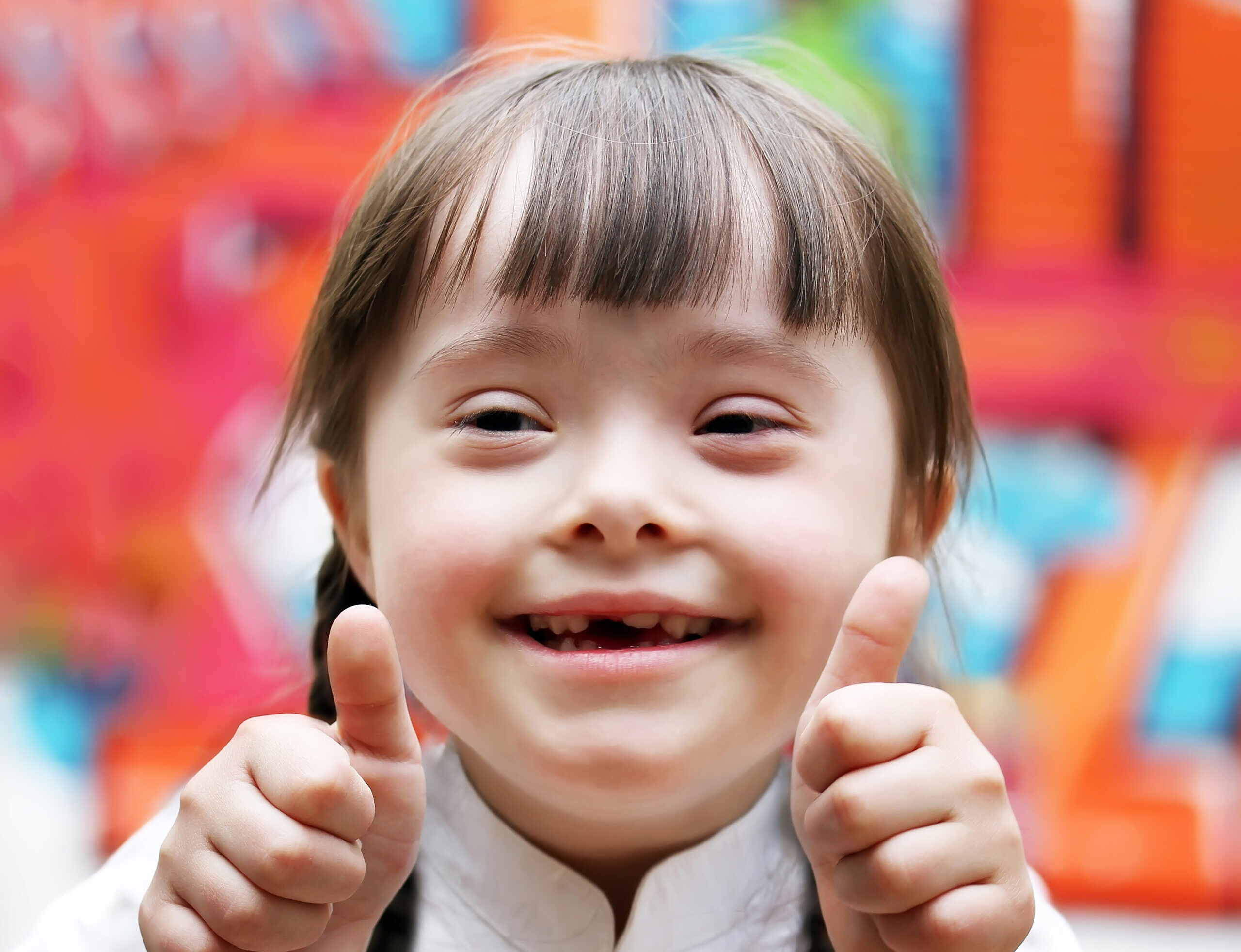
AdobeStock by denys_kuvaiev
<h2><span data-contrast="auto">March 21 is world down syndrome day. </span><span data-ccp-props="{";201341983";:0,";335559739";:160,";335559740";:259}"> </span></h2>
<p><span data-contrast="auto">The date was picked as down syndrome is commonly caused by “trisomy 21”, aka having three copies of chromosome 21. Around 1 in 800 babies are born with down syndrome. In New Zealand, that means roughly one baby born a week will have down syndrome. </span><span data-ccp-props="{";134233117";:false,";134233118";:false,";201341983";:0,";335551550";:1,";335551620";:1,";335559685";:0,";335559737";:0,";335559738";:0,";335559739";:160,";335559740";:259}"> </span></p>
<p><b>Read the Term 1 edition of <i>School News</i> <a href="https://www.schoolnews.co.nz/latest-print-issue/" target="_blank" rel="noopener noreferrer" data-auth="NotApplicable" data-safelink="true" data-linkindex="0">HERE.</a></b></p>
<p><span data-contrast="auto">Down syndrome is associated with a varying range of mild to moderate intellectual and physical disabilities. In the past, misconceptions led to limited pathways for individuals with down syndrome. Now, it’s understood that people with down syndrome are just as able to achieve as their peers, albeit with a little extra support. </span><span data-ccp-props="{";134233117";:false,";134233118";:false,";201341983";:0,";335551550";:1,";335551620";:1,";335559685";:0,";335559737";:0,";335559738";:0,";335559739";:160,";335559740";:259}"> </span></p>
<p><span data-contrast="auto">So how should individuals with down syndrome be supported in the classroom? Well, every student with down syndrome will differ. All children have unique learning support needs, including those with down syndrome, as the condition will vary in presentation with every individual. However, people with down syndrome can present similar learning needs associated with the slower-than-typical development which is characteristic of the condition. Both the </span><a href="https://nzdsa.org.nz/support/education/" target="_blank" rel="noopener noreferrer" data-auth="NotApplicable" data-loopstyle="link" data-safelink="true" data-linkindex="0"><span data-contrast="none">New Zealand down syndrome association (NZDSA)</span></a><span data-contrast="auto"> and the </span><a href="https://inclusive.tki.org.nz/guides/down-syndrome-and-learning/" target="_blank" rel="noopener noreferrer" data-auth="NotApplicable" data-loopstyle="link" data-safelink="true" data-linkindex="1"><span data-contrast="none">Ministry of Education website</span></a><span data-contrast="auto"> have some helpful resources on supporting ākonga with down syndrome. </span><span data-ccp-props="{";134233117";:false,";134233118";:false,";201341983";:0,";335551550";:1,";335551620";:1,";335559685";:0,";335559737";:0,";335559738";:0,";335559739";:160,";335559740";:259}"> </span></p>
<p><span data-contrast="auto">The NZDSA recommends that educators think ahead on which skills are important to teach a specific individual with down syndrome: “What skills will be useful in everyday life for the person you are working with?” the site asks. The association also recommends having a focus on motor skills, as people with down syndrome have low muscle tone as a function of their condition. That means students with down syndrome may require supportive furniture, easy grip pens or other learning equipment that supports an individual with down syndrome to focus on the skills being taught. </span><span data-ccp-props="{";134233117";:false,";134233118";:false,";201341983";:0,";335551550";:1,";335551620";:1,";335559685";:0,";335559737";:0,";335559738";:0,";335559739";:160,";335559740";:259}"> </span></p>
<p><span data-contrast="auto">People with down syndrome can find speaking difficult; however, they have excellent comprehension. Importantly, difficulty with speech is not indicative of understanding, so educators should use other methods of monitoring knowledge in ākonga with down syndrome. Individuals with down syndrome might also find listening difficult, so activities and tasks should be altered to reflect and support their needs. NZDSA suggests using visual aids and sign language if possible. The association also suggests playing to the strengths of the individual – those with down syndrome often have fantastic social skills, and learn well when partnered with others. It’s important to recognise that social skills can be just as important for everyday life as other subjects taught in a classroom. </span><span data-ccp-props="{";134233117";:false,";134233118";:false,";201341983";:0,";335551550";:1,";335551620";:1,";335559685";:0,";335559737";:0,";335559738";:0,";335559739";:160,";335559740";:259}"> </span></p>
<p><span data-contrast="auto">The Ministry of Education emphasises a close working relationship with the student and their whānau, asking them first what they need to succeed. The website also lists resources that may help create an inclusive education environment. These strategies often support the learning needs of other students, too. </span><span data-ccp-props="{";134233117";:false,";134233118";:false,";201341983";:0,";335551550";:1,";335551620";:1,";335559685";:0,";335559737";:0,";335559738";:0,";335559739";:160,";335559740";:259}"> </span></p>
<p><span data-contrast="auto">Other resources include a booklet for educators, exploring how an individual with down syndrome may learn and process information the best, and gives strategies for effective pedagogy. </span><span data-ccp-props="{";134233117";:false,";134233118";:false,";201341983";:0,";335551550";:1,";335551620";:1,";335559685";:0,";335559737";:0,";335559738";:0,";335559739";:160,";335559740";:259}"> </span></p>

NZCER found generative AI tools are frequently used to support teaching and learning in primary…
The Ministry decision to discontinue a reading resource over kupu Māori has angered the sector…
NCEA was designed to broaden educational success, explains David Pomeroy from the University of Canterbury.
More than just a break from the classroom, a visit to a zoo or wildlife…
Without proper maintenance and care, trees can become a hazard. Are your trees in need…
Loneliness and social disconnection negatively impact wellbeing. A new WHO report finds teens feel the…
This website uses cookies.